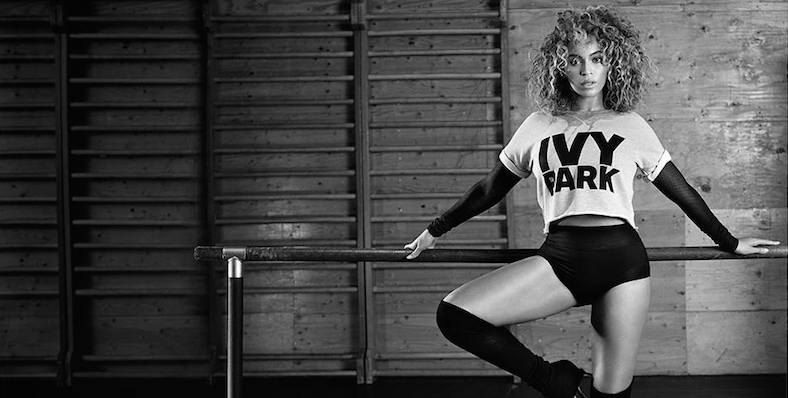Are we blinded by brand Beyoncé? Lucy Brown exposes…
In 2016 Beyoncé surprised us again when she burst onto the retail fashion scene with her active wear collection, Ivy Park. The collection aims to be durable, flexible and also fashionable with a minimalistic look despite the Ivy Park logo being splashed across every item. People flooded into Topshop stores nationwide to grab a piece of the new brand co-created by the pop queen herself. The brand was marketed in line with Beyoncé’s core values, to promote strong independent women. The slogan, ‘where is your park?’ implies that every type of woman can do sport. All very empowering, right?
Sure, in the countries that retail Ivy Park, this new clothing line has been applauded and countless women enjoy looking stylish heading off to the gym. Yet the dark truth behind Ivy Park came out about a month after its launch. Mid way through May, a British tabloid leaked information about the origins of Ivy Park and where it was made. The line had hundreds of women producing the clothes in the MAS Holdings factory in Sri Lanka. Sweatshop scandals have caused concerns before but because Beyoncé openly claims to be a philanthropist and a self-professed do-gooder, this situation is explicitly contradictory.
The Sri Lankan women manufacturing these clothes are reaping none of the benefits, unlike the designers, distributors and supposedly Queen B herself. The conditions they have to live and work in are frankly horrific, with women expected to do 18 hour days, paid as little as 44p an hour. They have to live in cramped conditions with no kitchens, communal washing spaces and curfew times away from their families. They are told when to go to bed at night then they are woken up six hours later to go and begin another 18 hour slog at the machine factory making overpriced clothes for fashion conscious, western gym bunnies.
Clearly this throws up massive ethical issues about the treatment of those in developing countries that are expected to work in factories to create the clothes we wear. This issue has been on-going for a long time but it’s imperative that people are informed about how their clothes are produced, rather than blinded by branding, so that they can make choices about where to spend their money. Customers are a powerful component in the retail success equation and if manufacturers could see that people prefer to buy clothes that have been ethically produced by a fairly treated workforce they would be forced to give staff a better deal. Maybe labels should even carry information about a garment’s source?
So the next time you see Beyoncé’s brand in Topshop, spare a thought for the women that have worked until their hands bleed to make it. If the information about the origins of our clothes was easily available, I’m sure we’d all prefer to spend our cash on leggings that are as comfortable on our conscience as they are to wear.
Lucy Brown

